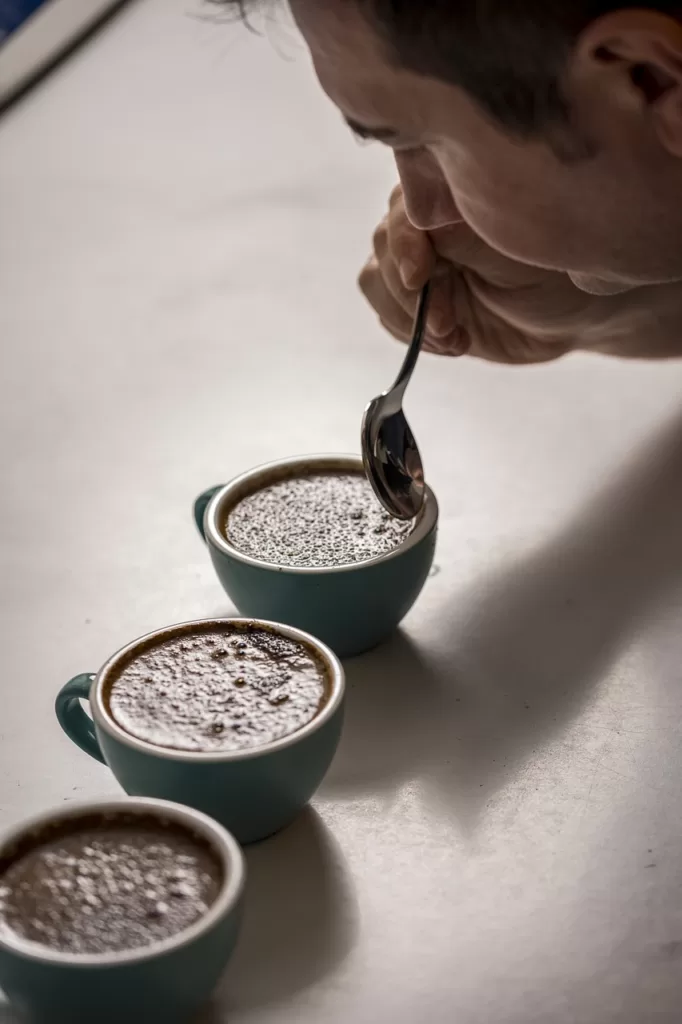Unlock Consumer Preferences: Sensory Testing for FMCG

In today’s rapidly evolving Fast-Moving Consumer Goods (FMCG) industry, one thing remains constant: the pursuit of perfection. The relentless quest to deliver products that tantalize the senses and captivate consumers is an unending challenge. Enter sensory testing, the cutting-edge solution that is reshaping the FMCG landscape and unlocking the secrets to unmatched product success.
Concept testing is the secret weapon that industry giants like Procter & Gamble, Unilever, Nestlé, Lion, Coca-cola and many many more rely on to make informed decisions that lead to product success. In this article, we’ll dive deep into the world of concept testing and explore how it can revolutionize your FMCG business.



The Power of Sensory Testing
At the heart of any successful FMCG product lies the ability to appeal to the five senses – taste, smell, sight, touch, and sound. Sensory testing is the key that unlocks these senses and provides invaluable insights to create products that go beyond just satisfying consumer expectations.
Precision Product Development
In the FMCG industry, precision is paramount. Sensory testing allows you to fine-tune every aspect of your product, from flavour profiles to textures. It enables you to identify the perfect combination of ingredients, ensuring your product delivers an exceptional sensory experience that resonates with your target market.
Consumer-Centric Innovation
Understanding what consumers desire is the holy grail of FMCG success. Sensory testing provides a direct line to consumer preferences, enabling you to make data-driven decisions. By measuring sensory responses, you can identify and prioritize attributes that matter most to your audience, ensuring your product hits the right notes with consumers.
Competitive Advantage
In a market saturated with options, differentiation is key. Sensory testing not only helps you create standout products but also allows you to communicate the unique sensory attributes of your offerings. You can highlight the subtle nuances that set your products apart, giving you a powerful edge in a fiercely competitive landscape.
The Sensory Testing Process
Carefully selected ingredients and precise formulation are essential to kickstart the sensory testing process. Create variations to test different aspects of your product.
Organize sensory tests with trained consumers who represent the target audience. Use appropriate sensory evaluation techniques
Based on the feedback and analysis, make adjustments or improvements to the product or experience. This could involve modifying ingredients or materials, changing the production process, or adjusting marketing strategies.
If significant changes were made, conduct another round of sensory testing to assess whether the adjustments have had the desired impact on the sensory attributes.
After achieving the desired sensory attributes, continue to monitor and maintain the quality by periodically conducting sensory testing to ensure consistency.
Real-World Success Story
Procter & Gamble (P&G) is a consumer goods company that has a long history of using sensory testing with consumers to develop and improve their products. One notable real-world story involves their use of sensory testing to develop and market a new line of laundry detergent called Tide Pods.
In the early 2010s, P&G was looking to innovate in the laundry detergent market. They wanted to create a product that would be convenient for consumers and provide excellent cleaning results. To achieve this, they decided to develop Tide Pods, which are single-use, pre-measured laundry detergent capsules that eliminate the need for measuring and pouring liquid or powder detergent.
The key challenge for P&G was to ensure that Tide Pods not only met their internal quality standards but also satisfied consumer preferences for scent, colour, and overall sensory experience. They wanted to make sure that the product’s sensory aspects would appeal to a wide range of consumers.
P&G conducted extensive sensory testing throughout the development process. They organized consumer panels where participants would use different versions of Tide Pods and provide feedback on various aspects, including:
1.Scent: P&G needed to select a fragrance that was not only pleasant but also had a universal appeal. Consumer feedback helped them choose a fragrance that was fresh and clean, and that the majority of participants found appealing.
2.Color: The color of the Tide Pods was also a critical factor. P&G tested different colour options to determine which one consumers associated with cleanliness and efficacy.
3.Texture and feel: The tactile experience of handling Tide Pods was important. P&G considered the texture and feel of the product in consumers’ hands, making sure it was easy to handle and dissolve properly in water.
4.Packaging design: The design of the packaging was another sensory aspect that needed attention. P&G used consumer feedback to create packaging that was not only visually appealing but also practical and easy to use.
Embrace Sensory Testing and Redefine Success
The FMCG industry’s future is being shaped by the power of sensory testing. Whether you’re a seasoned industry veteran or a rising star, integrating sensory testing into your product development process is the surefire way to unlock new horizons of success.
Don’t just meet consumer expectations; exceed them. Embrace sensory testing, and let your products speak to the senses of your customers like never before. With the cutting-edge insights it provides, your products will not only stand out but also become an integral part of your customers’ lives, creating lasting brand loyalty.
Join the sensory revolution today and experience the transformative power of sensory testing in the FMCG industry. Your success story is just a sensory test away.
